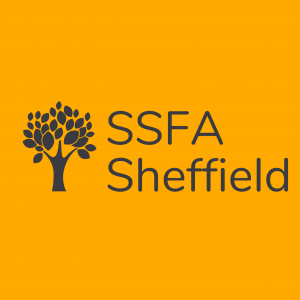Following a change in law in April 2024, there is an increased expectation on families to try to resolve legal issues without involving the court and to view court proceedings as a last resort.
The Court require recent evidence of attempts made to consider non court dispute resolution before any application can be made. This is usually in the form of a certificate from a mediator to confirm that they have attended a MIAM – Mediation Information and Assessment Meeting – within 4 months of the date of their court application. The court can also adjourn a case to give time to attempt or re-attempt non court dispute resolution.
There are several types of non-court dispute resolution and we have explained the main ones here.
What is mediation?
Mediation is a way for you to discuss any issues arising from separation with the assistance of an impartial third party who can provide legal information and support.
Mediation can assist with children and financial issues including child arrangements and co-parenting as well as financial arrangements and how to agree on a financial settlement. Sometimes other experts can become involved in mediation e.g. lawyers, independent financial advisors, pension experts or family consultants to provide specialised support during the process.
A mediator does not decide the outcome but assists those participating in mediation to find their own solution.
Mediation can be conducted online or in person.
It is important that those mediating feel comfortable and able to share their ideas and concerns in a safe and neutral space. This means that sometimes mediation is arranged on a shuttle basis where the mediator holds separate discussions with each participant to avoid them having to speak directly or see or hear the other person.
Mediation is child-centred, and children, where appropriate, can be given the opportunity to become involved in the process and to speak to a specialist ‘Child Inclusive Mediator’. Research shows children and young people value being asked what they think about decisions that affect them.
Advice now also has a guide about Family Mediation
Funding mediation
Legal aid is available for mediation. You can find out more information here. If you qualify for legal aid, you are entitled to free mediation sessions and summary documents and you are also entitled to basic free legal advice from a local legal aid solicitor during mediation.
The Family Mediation Council are currently offering vouchers of up to £500 to families mediating children matters. There is no eligibility assessment for this, and they are open to anyone, provided you have not had a voucher in the past. To find out more, contact your local mediator.
It could be possible for someone who does not qualify for legal aid to have up to 3 free mediation sessions (if the other participant qualifies for legal aid and the voucher is applied for). For more information contact your local mediator.
Find a mediator https://www.familymediationcouncil.org.uk/find-local-mediator/
Advice now also has a guide about Family Mediation.
Collaborative Process
Under the collaborative process, each person appoints their own collaboratively trained lawyer and they and their respective lawyers all meet together to work things out face to face. Sometimes other professionals are invited to join the process e.g. independent financial advisors.
All participants in the collaborative process sign an agreement that commits them to trying to resolve the issues without going to court and prevents the lawyers from representing their client in court if the collaborative process breaks down. This means that everyone is committed to finding a solution by agreement, rather than through court proceedings.
Find a collaborative lawyer https://resolution.org.uk/find-a-law-professional/
Family Arbitration
Family arbitration is a form of private dispute resolution in which the parties enter into an agreement under which they appoint a suitably qualified person (an “arbitrator”) to adjudicate a dispute and make a decision. The parties agree to be bound by the decision. Family arbitration can be used to resolve financial disputes and disputes concerning children. Family arbitration is likened to court proceedings in that a family arbitrator produces a decision after considering the evidence in each party’s case. It can be useful for discreet legal issues or time sensitive decisions. In financial cases the decision is called an award and in children cases it is called a determination.
Find an Arbitrator
IFLA | Institute of Family Law Arbitrators
Early Neutral Evaluation
Early Neutral Evaluation can take place within mediation and is where an experienced and independent lawyer reviews the information shared by both parties and applies the law to the situation, providing them with an indication of how the issues in dispute could reasonably be expected to be resolved in court. Importantly, an ENE provides an indication only. The indication is not legally binding. The hope is that the participants continue to discuss the issues within mediation and that the indication helps to unlock the dispute between them. ENE services are offered by experienced solicitors or barristers and local practitioners can be identified by mediators who practice in an integrated/holistic way.




